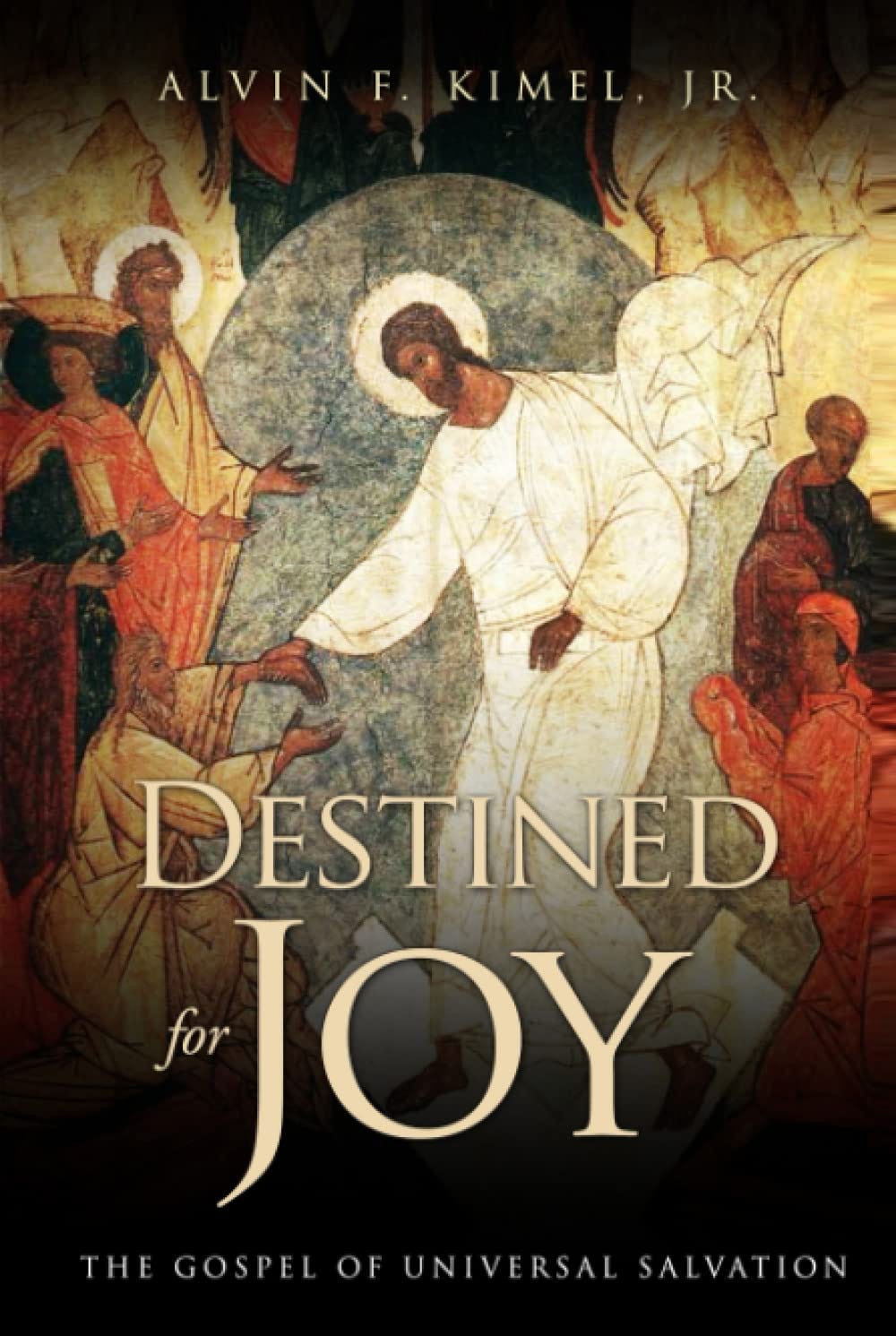An Announcement and an Addendum to my Addenda
I promise, the next article is coming in a few days, but...
1. The Announcement: I thought I should call attention to Alvin Kimel’s deeply moving new book, Destined for Joy: The Gospel of Universal Salvation, which has now appeared in print and is available. I can heartily recommend it.
2. The Addendum: A few further observations on that snippet of Irenaeus about the Carpocratians that Michael McClymond (and, in his wake, Gerald McDermott) cited as evidence of a “gnostic” origin of ancient Christian universalism. After I noted that the words “omnes animae” in the phrase in question probably should be read as having the force of “any souls,” for reasons of context and construction, D.W. Frauenfelder—classicist, novelist, Tiddlywinks champion of North America from 2017-2021 (all right, I’m making that last bit up)—offered the following comment:
I think the best translation of "omnes" in the fragment misleadingly employed by your opponent might be "all sorts," that is, distributively, since the passage goes on to discuss three types of soul, vel... vel.. vel... whether... whether... whether... But the context of that chapter is clear in any case—for the Carpocratians (according to Irenaeus) getting saved is a pretty involved process, not ensured for everyone.
A good observation. To be precise, there is only one “vel” in the passage, but also one “sive.” It actually reads thus:
...sic quoque salvari, et omnes animas sive ipsae preoccupantes in uno adventu in omnibus misceantur operationibus, sive de corpore in corpus transmigrantes, vel immissae in unaquaque specie vitae adimplentes, et reddentes debita, liberari, uti iam non fiant in corpore.
Curiously enough, however, this is one of those parts of the treatise for which the Greek is still extant. For me this raises the question of why McClymond relied on the Latin translation; why did he not cite the Greek or just quote it in English? At least, this strikes me as odd.
Anyway, the Greek version reads thus:
...καὶ οὕτως σωθήσεσθαι πάσας τὰς ψυχάς, εἴ τινες δὲ φθάσασαι ἐν μίᾳ παρουσίᾳ ἀναμιγῆναι πάσαις ἁμαρτίαις οὐκέτι μετενσωματοῦνται, ἀλλὰ πάντα ὁμοῦ ἀποδοῦσαι ὀφλήματα, ἐλευθερωθήσονται τοῦ μηκέτι γενέσθαι ἐν σώματι.
This I would render as:
...and this is how any [all] souls are to be saved: whether they precipitately involve themselves in all sins in just one advent [or lifetime] or instead transmigrate into other bodies, or otherwise discharge all their penal fines all at once, are liberated, and never more come to be in the body.
Which is really a little clearer than the Latin.
One might note, incidentally, that the Latin version slightly obscures some of the terminology of the original. It gives us operationibus, “activities,” in place of ἁμαρτίαις, which one would generally render as “sins.” It also gives us reddentes debita, “discharging debts,” in place of ἀποδοῦσαι ὀφλήματα, as if the second word were ὀφειλήματα. In this whole passage, as it happens, Irenaeus is explaining the Carpocratian reading of Matthew 5:26 or Luke 12:59, which is to say the logion that speaks of a condemned and imprisoned man not obtaining release until he has paid the last pittance of what he owes. But in the Greek of Irenaeus’s original this seems to mean the payment of all court fines, ὀφλήματα, rather than merely the debts owed by someone in debtors’ prison. Of course, that may be a distinction without a difference. Still, I would have chosen “moltas” or “mulctas” over “debita,” I think.
Not that it matters much.






Thank you, David, for your recommendation of 'Destined for Joy' and thank you for the excellent Afterword that you wrote for the book. Thank you!
Clearly my mind is a "sive"...but at least I have the Tiddlywinks championship to console me!
This universalist debate is unfortunate. I especially hated the remark that one reviewer of your book made that if you were to take hell out of the equation, Christianity wouldn't have any attraction. That's not good news at all.
On debts: I wanted to say also I appreciated what you had to say about the Lord's Prayer some time ago and the idea (if I am not misconstruing your argument) that part of the prayer is about debtor's court and the predatory lending practices in the ancient world that kept people in poverty and worse. I now never say the Lord's Prayer anymore without that in mind.